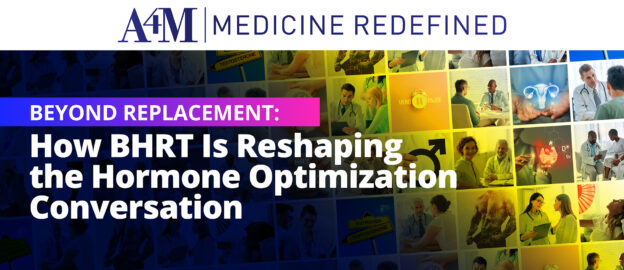In the rapidly evolving landscape of longevity and personalized care, bioidentical hormone replacement therapy (BHRT) is no longer a fringe consideration. It’s a core tool in the age management arsenal, particularly for clinicians committed to individualized, physiology-driven medicine. As new data sharpens our understanding of hormonal health, BHRT stands at the intersection of science, aging, and quality of life.
The upcoming BHRT Symposium (September 11–13, 2025) provides a timely opportunity to reassess how we’re integrating hormone optimization into clinical care, and what it means for the future of functional and regenerative medicine.


